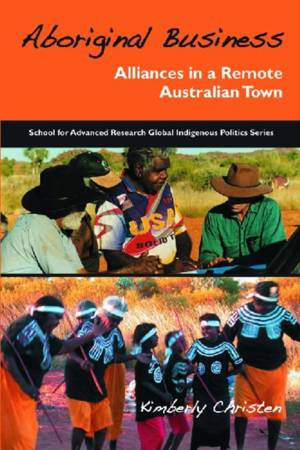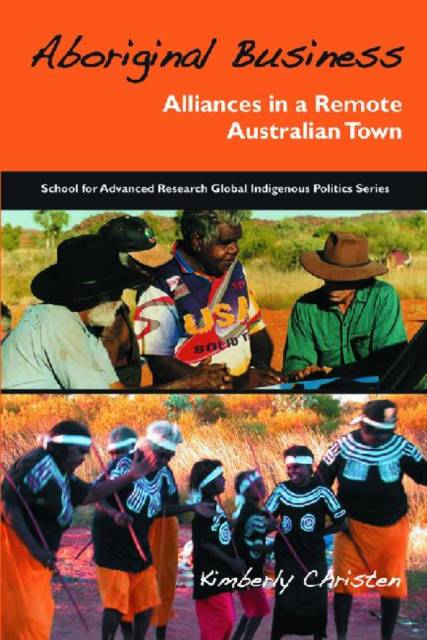
- Retrait gratuit dans votre magasin Club
- 7.000.000 titres dans notre catalogue
- Payer en toute sécurité
- Toujours un magasin près de chez vous
- Retrait gratuit dans votre magasin Club
- 7.000.0000 titres dans notre catalogue
- Payer en toute sécurité
- Toujours un magasin près de chez vous
Description
From the vantage point of the remote Northern Territory town of Tennant Creek in Australia, this book examines the practical partnerships and awkward alliances that constitute Indigenous modernities. It is an ethnographic snapshot of the Warumungu people as they engage with a range of interlocutors, including transnational railroad companies, national mining groups, international tourists, and regional businesses. Although the Warumungu are the traditional owners of the country in and around present day Tennant Creek, the history of white settlement and Aboriginal displacement has made this town, for better and worse, a site for the ongoing process of interdependent community-making. Anthropologist Kimberly Christen examines both the colonial past and the contemporary practices of alliance-making that set the stage for an alternative future, rerouting the national and global narratives that still seek to confine Indigenous people to the margins. Warumungu "mobs"--variously connected and shifting sets of kin--actively seek to carve out a space within a nation that both condemns and celebrates them.
Spécifications
Parties prenantes
- Auteur(s) :
- Editeur:
Contenu
- Nombre de pages :
- 334
- Langue:
- Anglais
- Collection :
Caractéristiques
- EAN:
- 9781930618985
- Date de parution :
- 10-03-09
- Format:
- Livre broché
- Format numérique:
- Trade paperback (VS)
- Dimensions :
- 163 mm x 224 mm
- Poids :
- 453 g

Les avis
Nous publions uniquement les avis qui respectent les conditions requises. Consultez nos conditions pour les avis.






